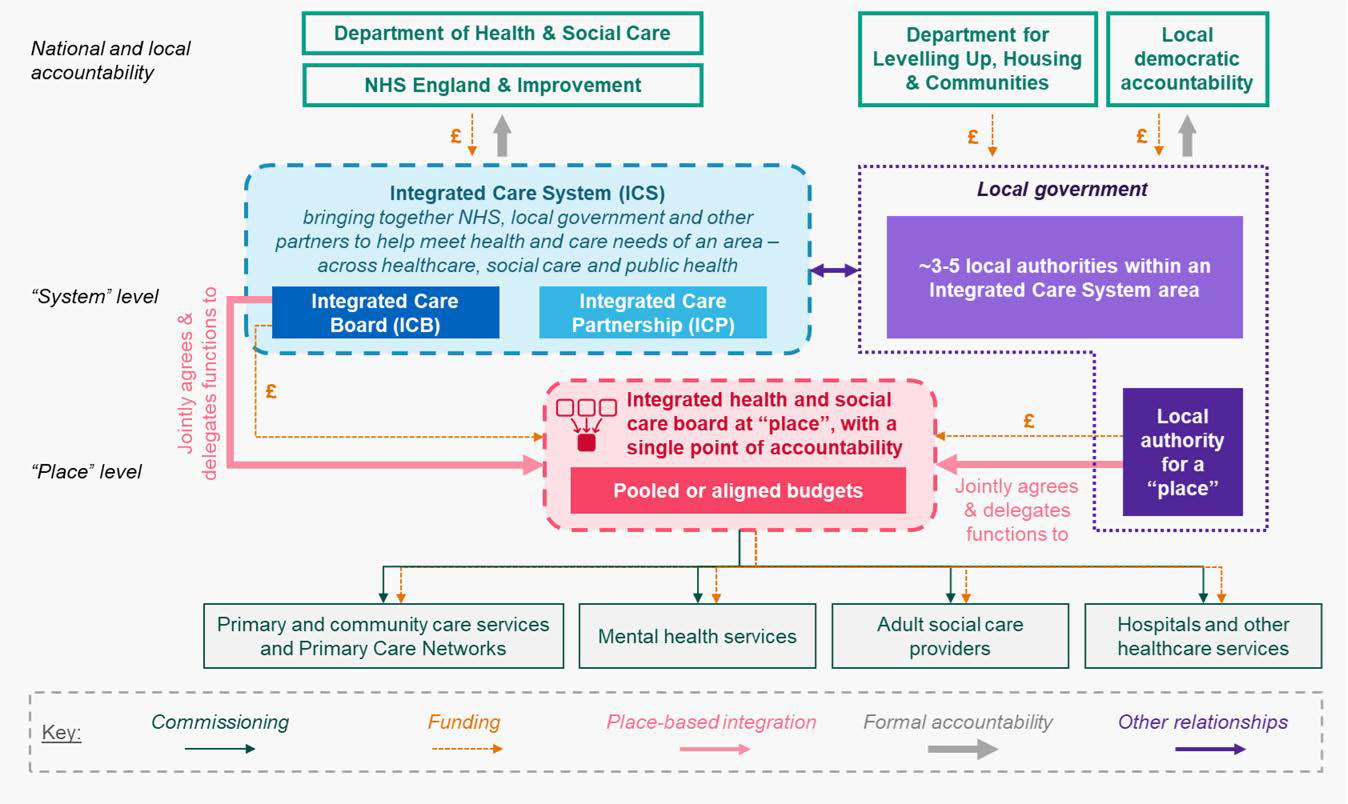The Government’s proposals for health and care integration in the White Paper should be widely welcomed across the NHS and Local Government because the ambition is not just about delivering better person-centred care, but also about improving the public’s health and reducing health inequalities.
The White Paper represents the radical paradigm shift long called for by, among many others, the Health Devolution Commission to move the NHS towards a fundamentally new purpose and a genuinely new partnership with Local Government including social care and wider public services, the VCSE and the local people and communities that it serves.
There will be disappointment that there are no new resources identified specifically for delivering these proposals. But this White Paper should be viewed as re-baking the health and care cake rather than adding another layer of icing. It is, in broad terms, about spending existing resources and using existing staff in a fundamentally new way not just adding a new service. And it must be hoped that replacing the term ‘health inequalities’ with the term ‘health disparities’ throughout is just political wordplay rather than any weakening of a commitment to this new, central purpose of the health and care system.
These proposals build upon the wider landscape of change described in the Health and Care White Paper published in February 2021, the Adult Social Care White Paper published in December 2021 and the Health and Care Bill currently in Parliament to place the new system of 42 ICSs in England on a statutory footing. The diagram below taken from the White Paper usefully illustrates what the new national, system and place level landscape will look like:

Whilst there is much valuable detail in the White Paper there remain six key concerns to be resolved in the coming months.
First, to what extent will there be flexibility for the partners each place to set their own priorities for shared outcomes (such as mental health or children’s health and wellbeing), as well as delivering national shared outcomes set by the Government.
Second, it will be interesting to see how many 'place boards' - which will be very powerful bodies – will be chaired by elected representatives (who can now be members of their parent IC Board) as a means of embedding local democratic accountability into the system.
Third, the key challenge on pooling budgets for many will be reaching agreement among local partners about what amounts to a ‘fair and appropriate’ contribution.
Fourth, delivering a shared digital care record for every individual to improve outcomes and the experience of care, and provide key population health data for local service planning will be a big challenge for the social care sector where 60% of this largely private sector market still use paper-based care records, and significant funding will be required achieve this goal.
Fifth, there will be a concern that the proposed review of regulatory or statutory requirements to remove barriers to workforce integration could undermine hard-won pay and conditions in the NHS without lifting the wholly inadequate pay and conditions of hundreds of thousands of care workers in the social care system.
Sixth, the White Paper does not address the relationship between new Place Boards and other parts of the emerging infrastructure such as new provider collaboratives and the neighbourhood level Primary Care Networks.
A refreshed and reinvigorated Health Devolution Commission will, with its partners - including the LGA and the NHS Confederation - highlight through its agreed programme of activity in 2022 emerging best practice amongst ICSs in relation to the issues above and develop some answers to the “wicked questions” that place-based integration presents.
In conclusion, there is a great deal in this White Paper to be welcomed. It sets out in clear and, in the most part, unambiguous terms what the NHS and Local Government must now do to shift our health care system away from a traditionally NHS-dominated, treatment-centred approach, to an accountable partnership of local organisations with a common purpose focused on delivering seamless person-centred care, improving the public’s health and reducing health inequalities. This is one small white paper step for Government, but potentially one giant leap forward for the nation’s health and wellbeing.
Phil Hope and Steve Barwick, the Health Devolution Commission Secretariat



